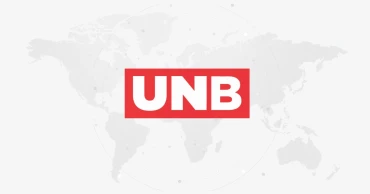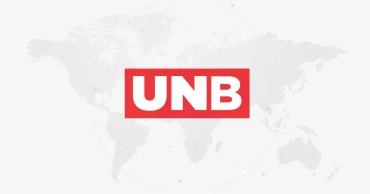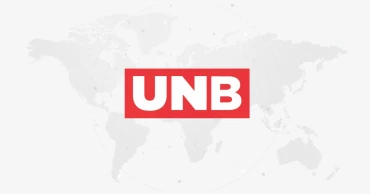UN Resident Coordinator in Bangladesh
Bangladesh’s achievements made it an example for other countries to emulate: UN
On the eve of the Victory Day, UN Resident Coordinator in Bangladesh Gwyn Lewis on Thursday said the United Nations stands with Bangladesh in partnership and wished all Bangladeshi nationals, in the country and abroad a very happy Victory Day.
“Bangladesh’s achievements in human development and disaster response, long before it became a middle-income country, made it an example for other countries to emulate,” she said congratulating Bangladesh on Victory Day.
Read more: Bangladesh set to celebrate Victory Day Friday
On 16 December, Bangladesh will celebrate its 51st anniversary of Victory Day.
The country has been on an extraordinary voyage from being a war and famine-ravaged newborn nation, to its current standing as a United Nations member state standing at the threshold of LDC graduation, and providing shelter to nearly a million Rohingya refugees, Lewis said.
“Bangladesh too has contributed to shaping the UN’s development agenda and peace operations globally. Bangladesh has also been a vocal advocate for multilateralism, climate justice and the interests of least developed countries,” she said.
Bangladesh sponsored the Culture of Peace resolution that was unanimously adopted by the UN General Assembly in 1999.
Read more: Indian war veterans to join Bangladesh’s Victory Day celebrations in Dhaka
And it was thanks to Bangladesh’s advocacy that the UN General Assembly recognized the International Mother Language Day in 2008.
“Bangladesh’s advocacy internally for the rights of the most vulnerable, and its constitution illustrates the country’s determination to be a democracy in which fundamental human rights and freedoms and respect for the dignity and worth of the human person shall be guaranteed,” said the UNRC.
The UN has been a partner of the government and the people of Bangladesh since its birth. Starting with UNHCR in 1971, 22 UN agencies now have operations in the country.
“Wishing everyone a happy Victory Day!,” Lewis said.
3 years ago
Freedom of assembly shouldn’t come with possible destabilization of city
UN Resident Coordinator in Bangladesh Gwyn Lewis on December 7, 2022 “reminded” Bangladesh of its commitments, as a UN member state, to "free expression, media freedom, and peaceful assembly" among others written in the Declaration as the country is coming closer to its national election.
The timing of the statement is interesting, almost like a note of warning, as if BNP has been outright denied the right of assembly for its proposed Dhaka rally on December 10.
The truth is that the government has offered BNP one of the best venues in Dhaka to hold the proposed rally — Suhrawardy Udyan. This is the designated space in Dhaka for big political rallies, a venue rendered historic thanks to the March 7, 1971 speech of the nation's founder Sheikh Mujibur Rahman.
Bangabandhu gave his call for freedom on that day from this historic venue that marked the transition from a peaceful struggle for democratic rights within Pakistan to a do-or-die struggle for independence.
The Instrument of Surrender was also signed by the Pakistan army at this venue on December 16, 1971.
For anyone looking to host a massive public spectacle in Dhaka, the Suhrawardy Udyan is a natural choice.
Read more: Nayapaltan clash: 445 BNP activists including Rizvi, Annie sent to jail, 2 get bail
All big political rallies in Dhaka, including those held by both PM Sheikh Hasina and former PM Khaleda Zia, to mobilize movement against military rule were organized at Suhrawardy Udyan in the late 1980s.
The grounds ensure a huge holding capacity because it can easily accommodate a million people or more. More importantly, it can do so without causing any disruption to traffic movement in Dhaka.
BNP, however, refuses to hold the rally at Suhrawardy Udyan and is adamant about holding the rally in front of its central party office at Naya Paltan. That is what the administration has not cleared, and for good reason. This area is within Dhaka’s central business zone and a rally there would surely cause massive traffic disruptions. Party offices can be located in a business district for the sake of visibility and small gatherings of party workers or press conferences can be held there. But how feasible does a major rally in front of the party office, in the central business zone, sound?
London Police will permit political rallies in Hyde Park but will it allow any party to hold a rally on Oxford Street or in front of the London Stock Exchange? Will the New York Police Department allow a rally in its central business district? Will Kolkata Police allow a political rally on Park Street?
What is true for London or New York or Kolkata is also true for Dhaka. Political rallies should be held in designated public grounds and not on the street in a business zone.
So the Dhaka Metropolitan Police has done the right thing by denying permission for the rally in Naya Paltan .
Why is BNP insisting on holding the rally at Naya Paltan and not at Suhrawardy Udyan?
Is the party afraid that it won’t be able to fill up the huge Suhrawardy Udyan?
Read more: BNP executed its plan at Nayapaltan yesterday: Quader
If the turnout at the rally is smaller than that thronging the Mirpur stadium during the ongoing cricket series against India, BNP’s claims of a popular movement will fall flat on its face.
Police also suspect that BNP, by holding a rally at Naya Paltan, may actually try to destabilize the city and administration by inflicting a violent campaign.
Democratic rights, including those related to freedom of assembly, are subject to limitations. For instance, one cannot hold a public rally with loud microphones in front of a hospital.
The UN should definitely focus on restoring democracy in Myanmar, where the military junta has obviously trampled on rights, rather than “reminding” Bangladesh on what it should do.
The writer is an Ekushey Padak-winning journalist.
3 years ago
7.2m people affected due to flood in Bangladesh: UN
Around 7.2 million people have been severely affected following devastating flash floods which began in May with a second wave starting on June 15 in nine northeastern districts of Bangladesh, said a media statement from the UN Resident Coordinator in Bangladesh.
The affected districts are - Sylhet, Sunamganj, Moulvibazar, Habiganj, Kishoreganj, Netrakona, Brahmanbaria, Mymensingh and Sherpur.
Among the nine districts, Sylhet, Sunamganj, Moulivazar, Habiganj and Netrakona are the most affected.
According to the statement, on July 2-3 July, a joint mission of the United Nations, humanitarian donors (European Union, the United Kingdom) and NGO partners visited the flood-affected districts of Sylhet and Sunamganj.
The mission aimed to see the impact of and response to the floods express its solidarity with those affected and offer condolences.
The mission was able to see the extent of the flooding, hear from some of the people affected, speak with key local authorities delivering the government’s response, and get a glimpse into the scale and scope of the response provided by the government complemented by UN agencies and NGOs. There is a large-scale coordinated response operation ongoing under the government’s strong leadership.
The government has moved over 472,000 people to some 1,605 shelters. Many of the most vulnerable people within the communities that we spoke to have received vital food assistance.
The UN and NGO partners are supporting these efforts by delivering food assistance, drinking water, cash, emergency drugs, water purification tablets, dignity and hygiene kits and education support to the affected families.
Read: Flood: 2 more deaths push up toll to 112
UNICEF re-allocated $2.8 million of internal resources to meet the emergency needs and has provided life-saving support to nearly one million people.
WFP distributed 85 tons of fortified biscuits to 34,000 households in three districts.
UNFPA has provided referral support for pregnant women to access hospitals and positioned midwives to provide 24/7 emergency obstetric support. UNFPA is also operating maternity waiting homes for pregnant women while they wait for institutional delivery.
The WHO provided 250,000 water purification tablets to the affected people. Key national and international NGOs are providing vital emergency response in the most-affected areas, including the provision of critical cash assistance, safe drinking water, shelter, and emergency sanitation under the government’s leadership. The government has announced welcome additional support.
Despite these efforts, and due to the scale of the floods, there are areas that are still inaccessible – cut off from rescue or relief. Many of the elders in the communities described this flood as worse than any that they have seen in their lifetimes, said the statement.
In addition, some 60,000 women in the affected areas are pregnant. Of them, some 6,500 will give birth in the next month. With primary healthcare centres submerged and non-functional, most of these women have limited or no access to healthcare.
Where water has receded somewhat, more families will return to damaged homes, others will have to rebuild from scratch. Damaged latrines and water sources will also need to be repaired. Children have lost three weeks of schooling already and their books have gotten washed away. This comes on top of the loss of schooling due to the COVID-related school closures in 2020-2021.
The statement added that in the face of ongoing needs and to complement the government of Bangladesh’s ongoing efforts, the European Union allocated €1.2 million (Over Tk 11.7 crore) to humanitarian NGOs and €200,000 (Over Tk 1.9 crore) through the Bangladesh Red Crescent Society, the UK released £636,548 (Over Tk 7 crore), Sweden committed 13 million SEK (Over Tk 12 crore), and the United States through the US Agency for International Development allocated $250,000 (Over Tk 2.3 crore) in emergency funding.
3 years ago
UN support to Bangladesh over Rohingya issue to continue: Mia Seppo
UN Resident Coordinator in Bangladesh Mia Seppo on Tuesday said the United Nations will continue its support to Bangladesh on the Rohingya issue.
Mia Seppo said this when she made a farewell call on Prime Minister Sheikh Hasina at her official residence Ganobhaban.
PM’s press secretary Ihsanul Karim briefed reporters after the meeting.
Read: Mia Seppo lauds Bangladesh’s Covid control
Hasina told Mia Seppo that Bangladesh has given shelter to the forcibly displaced Myanmar nationals on humanitarian grounds. “They should return to their country,” she said.
The Prime Minister mentioned that if these Rohingyas -- more than one million – continue to live here it will create various social problems in Bangladesh and said the NGOs which are working in Bangladesh can also work for the Rohingyas in their homeland.
They also discussed the issues relating to Covid-19, climate change and women empowerment.
The Prime Minister said the government has ensured women participation in every sphere of government jobs and even in sociopolitical areas.
Read: World needs journalists more than ever: Mia Seppo
Mia Seppo expressed satisfaction over her stay in Bangladesh saying that she had a very good collaboration with the government.
Ambassador at Large Md Ziauddin and Principal Secretary Dr Ahmad Kaikaus were present at the meeting.
Referring to a recent resolution taken by Asean on Rohingya issue, the Prime Minister said Asean has sent a good message to Myanmar with the resolution.
4 years ago
Bangladesh sets up standards for fabric mask production
Bangladesh has established minimum requirements for the production of non-medical fabric masks for community use, making an important step towards safe and regulated production of masks and providing essential guidelines to local manufacturers, RMG sector and NGOs to join the fight against COVID-19.
5 years ago
Diplomats share views on Bangabandhu's leadership, values
A clutch of diplomats stationed in Dhaka on Saturday highlighted the values set by Bangabandhu and the importance of following his ideology of social rights for all.
5 years ago




.jpg)



